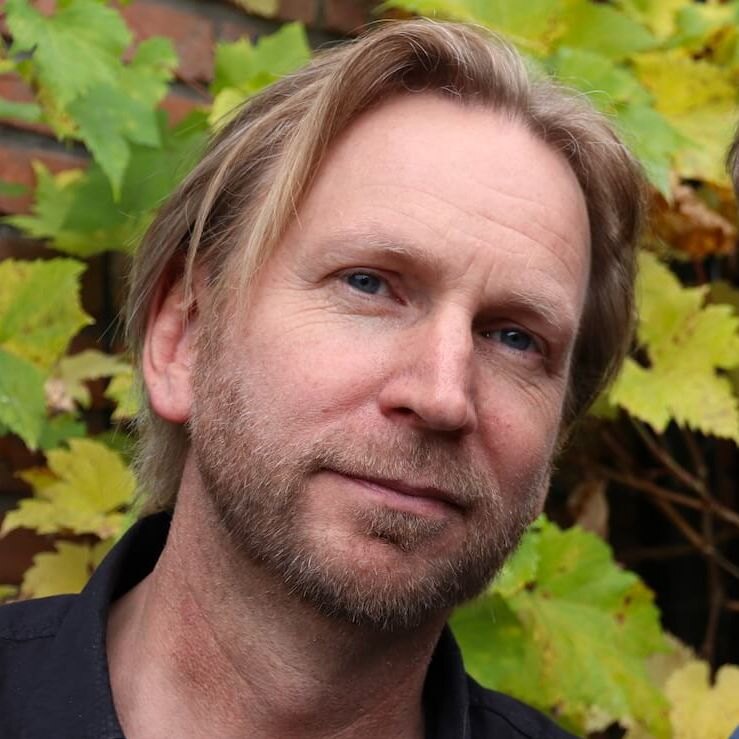On a nearly tropical Sunday, September 1st, I set off for the Dutch Betuwe region to attend the first edition of Wijnfestival van de Lage Landen (Wine Festival of the Low Countries). The festival is an initiative by wine expert and consultant Janna Meppelink, in collaboration with wine market content specialist Manon de Boer.
After leaving the highway, I found myself navigating narrow roads that led to the village of Beesd, where the charming estate Heerlijkheid Mariënwaerdt is located on its outskirts. It was quite a pleasure on a sunny day to drive along the stately avenues of this more than 900 hectare estate with final destination the 'Hooge Schuur' at the edge of the park forest.
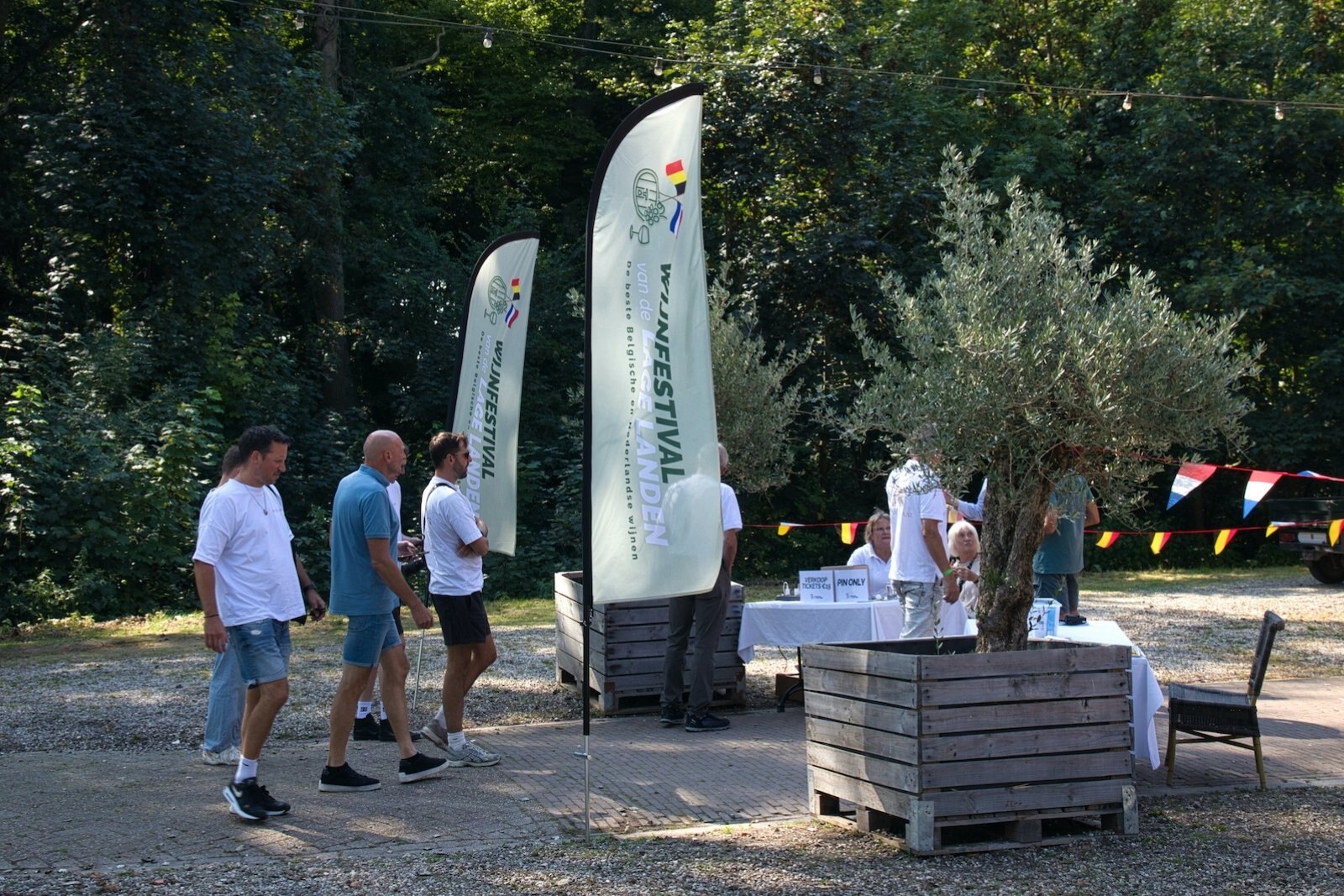
Masterclass Vicky Corbeels
Prior to the festival, there was a private master class by Vicky Corbeels. She is doing her PhD research at the University of Antwerp on environmental sustainability of emerging cool climate wine regions. This also in view of the Green Deal, the European aim to be climate-neutral around 2050. The focus of this research is mainly on viticulture and wine making (vinification) rather than packaging and distribution.
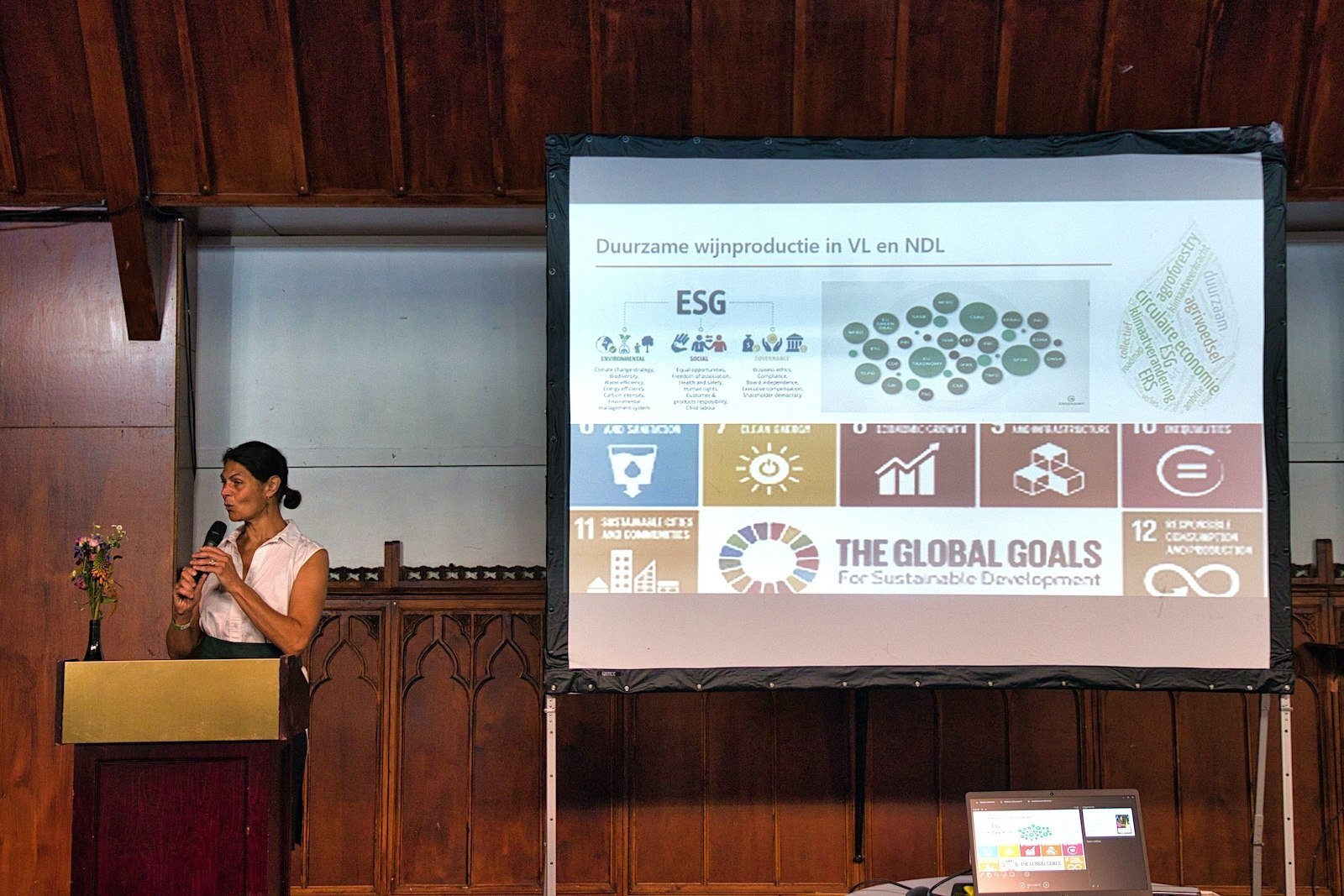
A key focus for European winemakers in terms of environmental sustainability is embracing a circular economy. This approach goes beyond just recycling and encompasses the many steps that come before it. Which grape varieties do you cultivate? What products do you use, and are they all truly essential? Do you need to own a full range of equipment, or could some be shared? Is it better to purchase new equipment, or should you prioritize repairing what you already have? Can leftover materials be repurposed for other uses?
Questions that some winemakers already have answers to and others may not have thought about yet. There is no doubt that there is work to be done to reduce CO2 emissions, among other things. This master class was engaging, but it felt a bit too brief to explore the topic in depth.
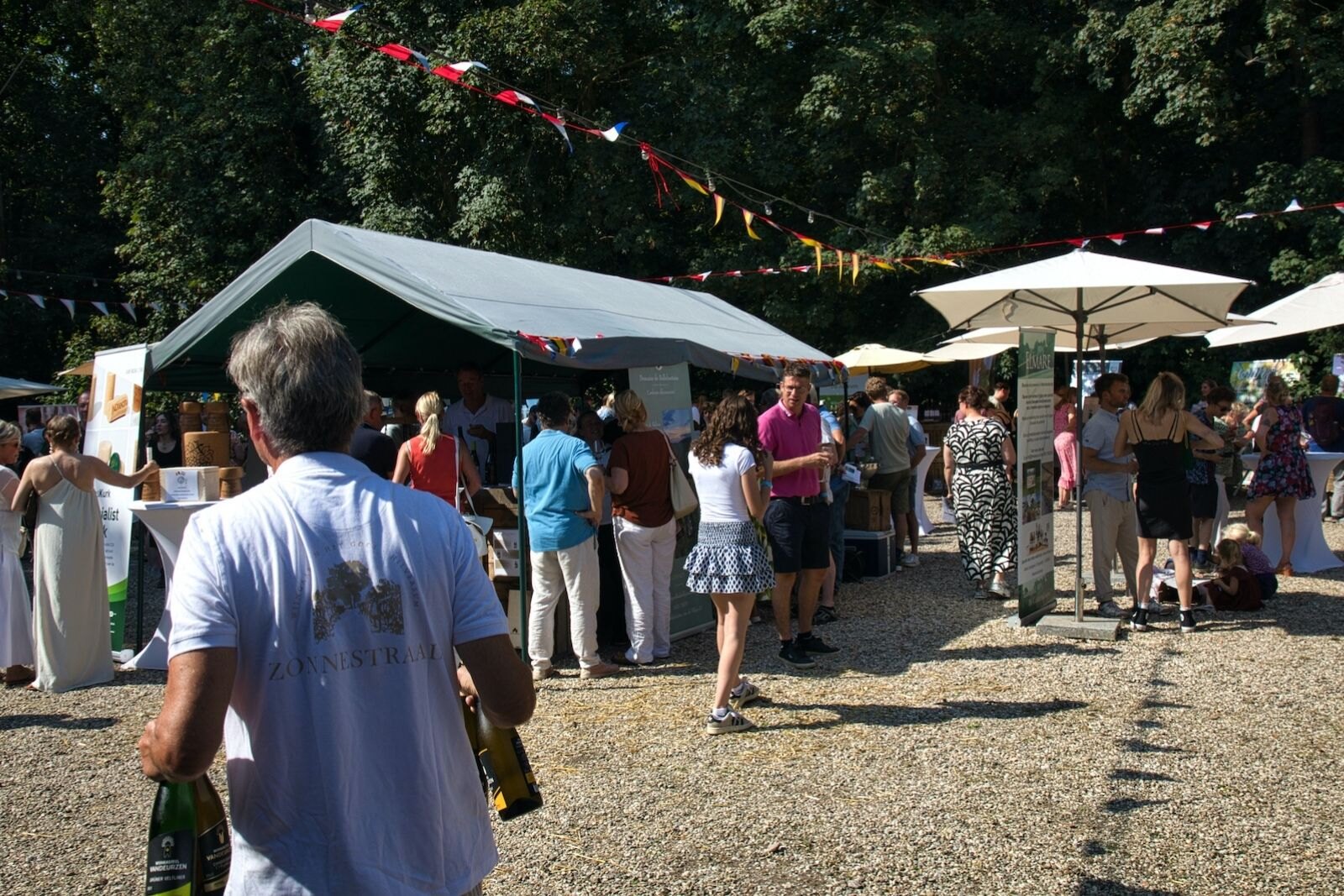
Dutch winemakers
Around thirty winemakers, mostly from the Netherlands and five from Belgium, gathered in the courtyard of the "Hooge Schuur." Among them were some of the more well-known and larger Dutch vineyards, such as Betuws Wijndomein, Wijngaard St. Martinus, Wijngaard Hof van Twente, and Domein Holset, which specializes in sparkling wines.
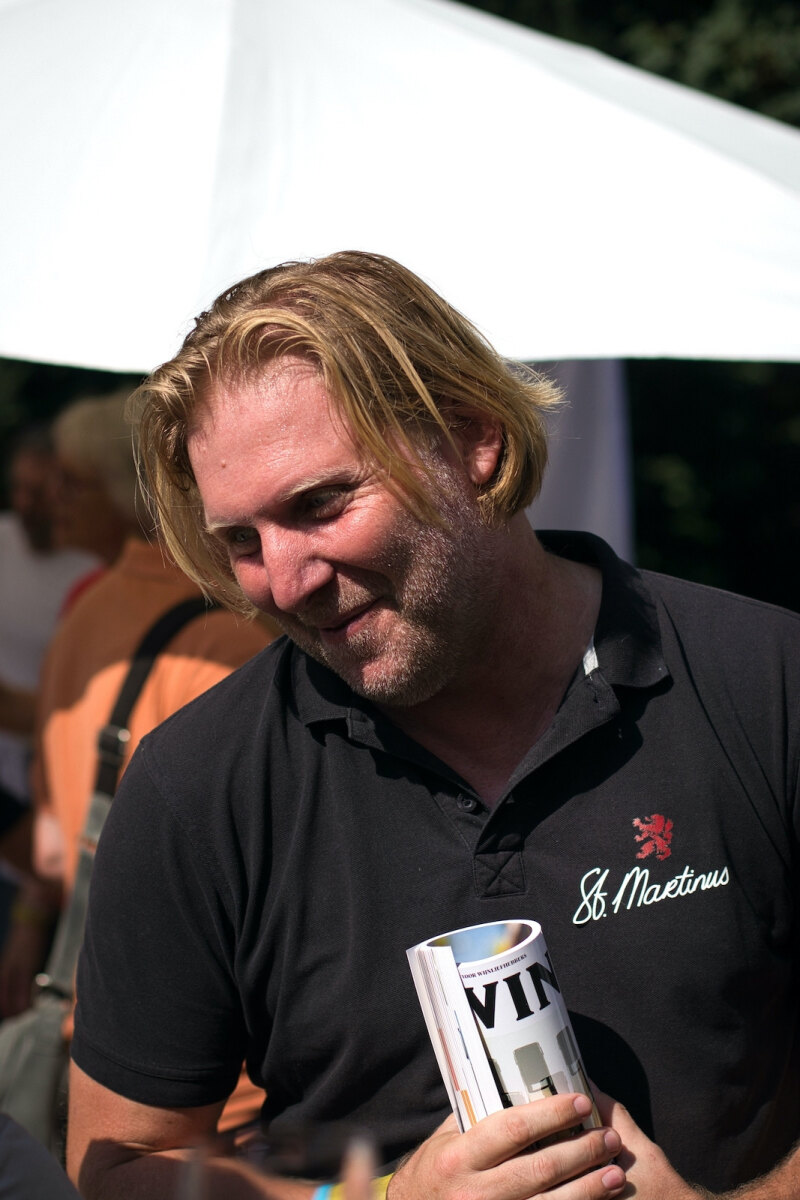
One notable participant was Sint-Catharinadal, a Norbertine priory in Oosterhout that now has around ten hectares of vineyards. The sisters of this monastery began planting the first vines in 2014.
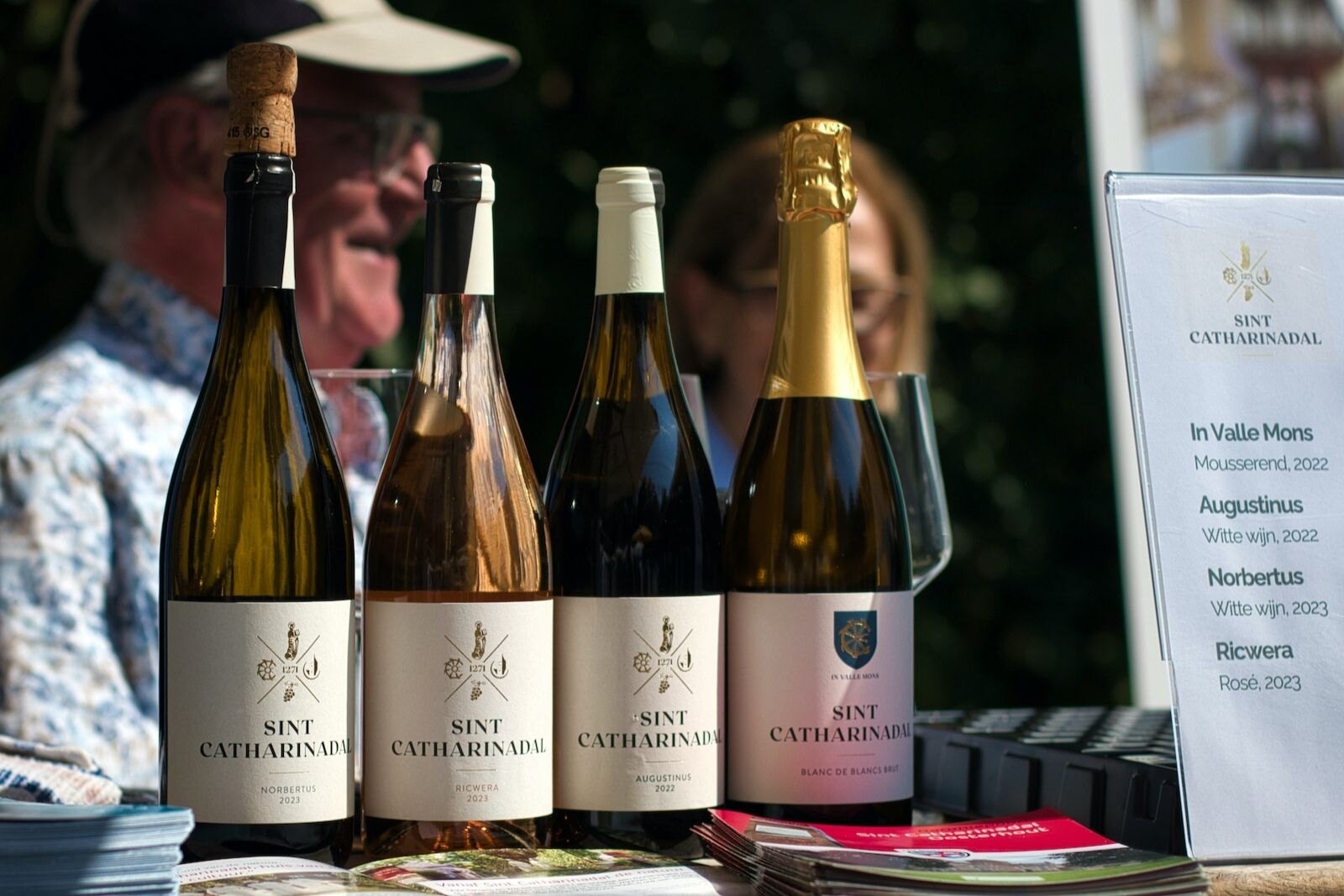
One of the great things about a wine festival like this is discovering smaller vineyards that you may have never heard of but that sometimes produce surprisingly good wines. We had previously visited Wijngaard De Frysling, Wijngoed De Reestlandhoeve, Wijngaard Aan de Breede Beek, Wijndomein Auansati, and Wijnboerderij 't Heekenbroek.
However, vineyards like Wijngaard De Wolfshaar (Overijssel), Wijngaard De Holdeurn (near Nijmegen), and Wijndomein Süth (near Arnhem) were still new to us. And we didn't even have the chance to speak to all the winemakers present.
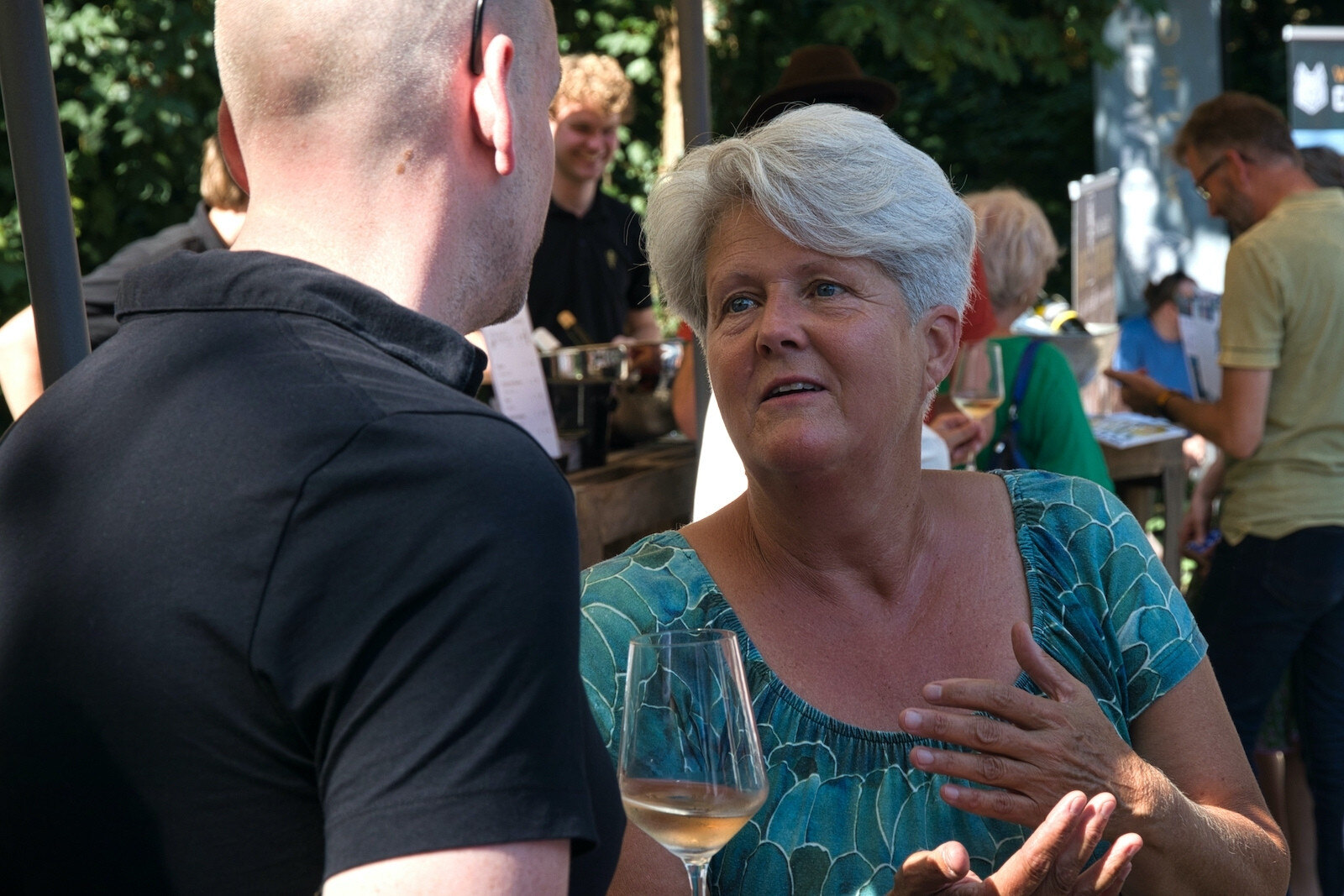
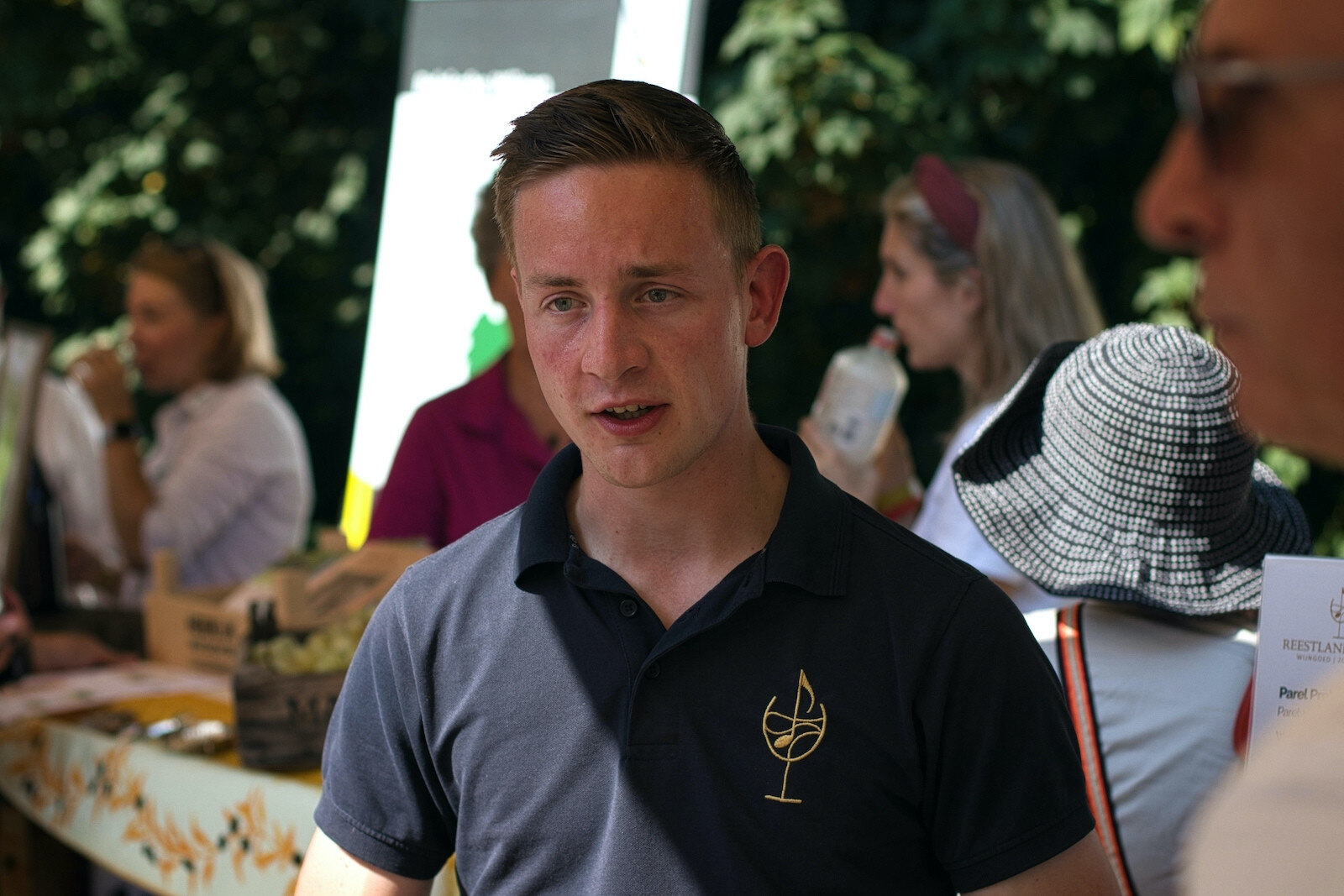
Belgian winemakers
Unfortunately, there were only five Belgian winemakers represented, which doesn't quite reflect the dynamic wine scene in Belgium. That said, the Belgian vineyards that participated attracted plenty of interest.
Wijnkasteel Van Deurzen, for instance, stood out with its unconventional plantings of Albariño, Grüner Veltliner, and Tempranillo grape varieties - rarely seen in the Low Countries. Another "castle domain" was Wijndomein Haksberg, located in the Hageland region just east of Leuven, where they cultivate both classic and modern grape varieties.
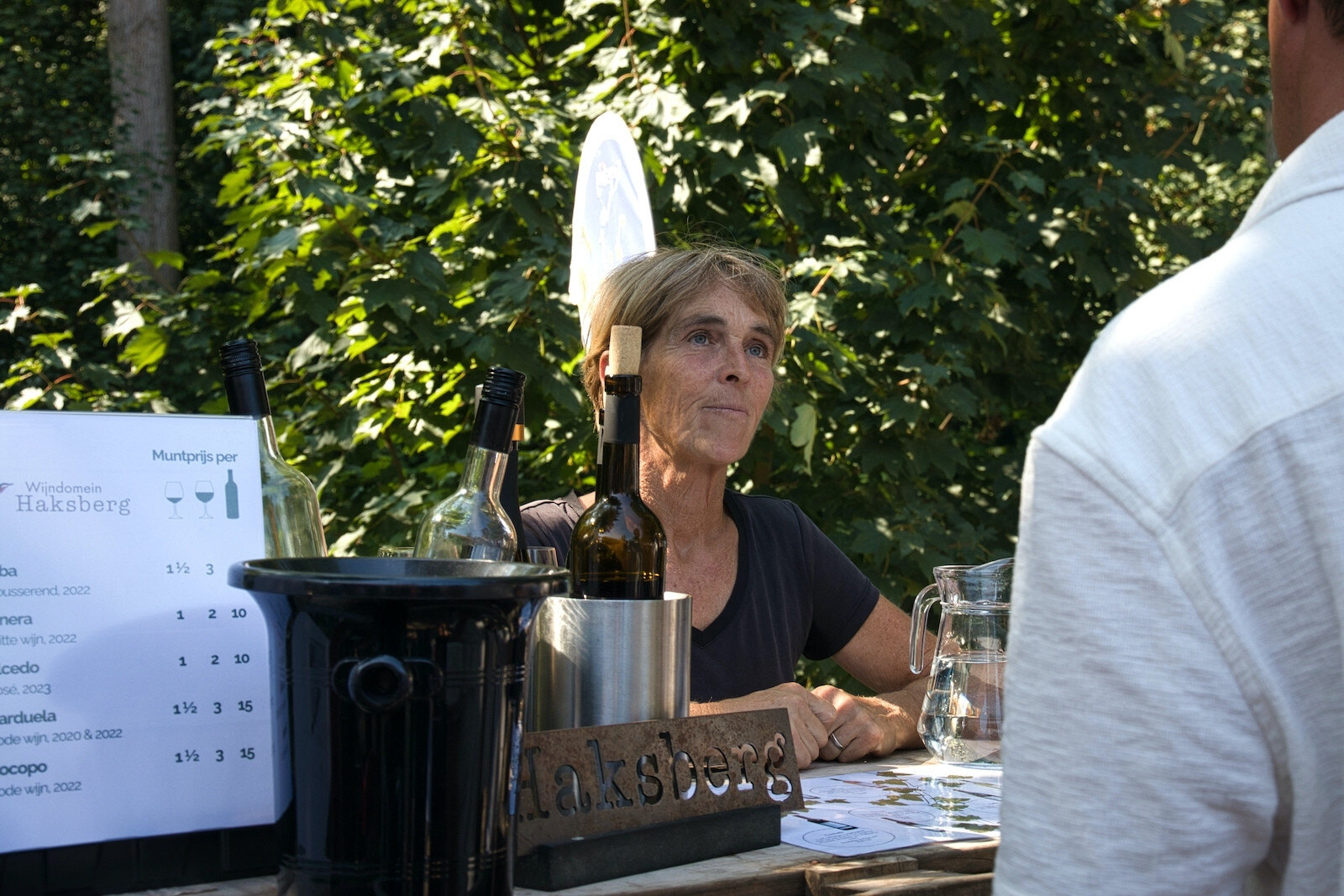
Near Antwerp, in Wijnegem (what’s in a name), is Wijndomein Vigna, a vineyard spanning about ten hectares that transformed a former water and lemonade factory into a wine estate. Domaine de Bellefontaine captured the audience award for the best sparkling wine with their Crémant de Wallonie. Winery Valclegge was also present, but unfortunately, I didn't get the chance to speak with them or taste their wines.
Wine Competition of the Low Countries 2024 (Wijnkeuring van de Lage Landen 2024)
At the Wine Festival of the Low Countries, medals were presented based on the results of the Wine Judging of the Low Countries. The medals for the best winemakers of 2024 were awarded to Betuws Wijndomein (NL), Wijngaard Hesselink (NL), and Wijngaard Keulenhof (NL). Alongside Betuws Wijndomein and Wijngaard Hesselink, the recognition for vineyard owners who maintained consistent quality over the past three years also went to St. Martinus (NL) and Hof van Twente (NL).
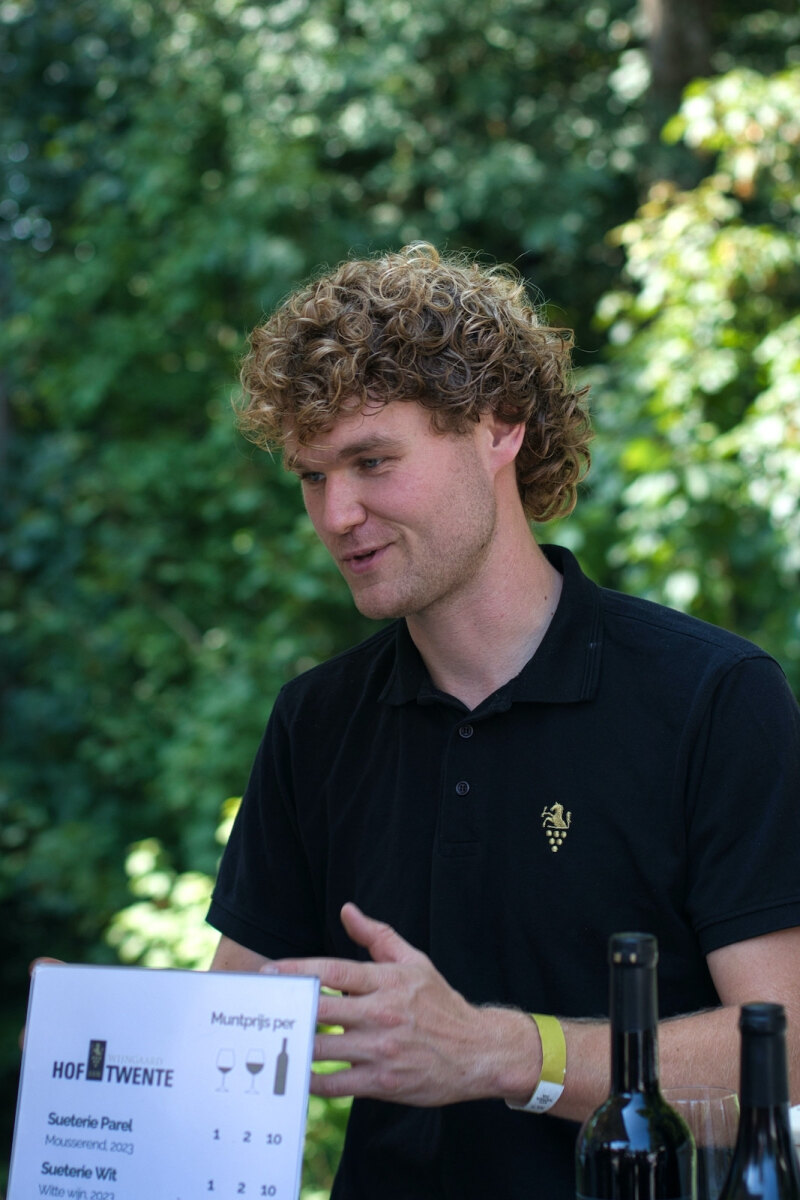
A total of 230 medals were handed out, with the wines being judged by independent experts from Germany. One observation might be that there were relatively few Belgian entries. However, it's clear that more Dutch wines were judged this year, and there was an increase in participants—a positive development that suggests that wines awarded a medal after blind tasting are of good quality.
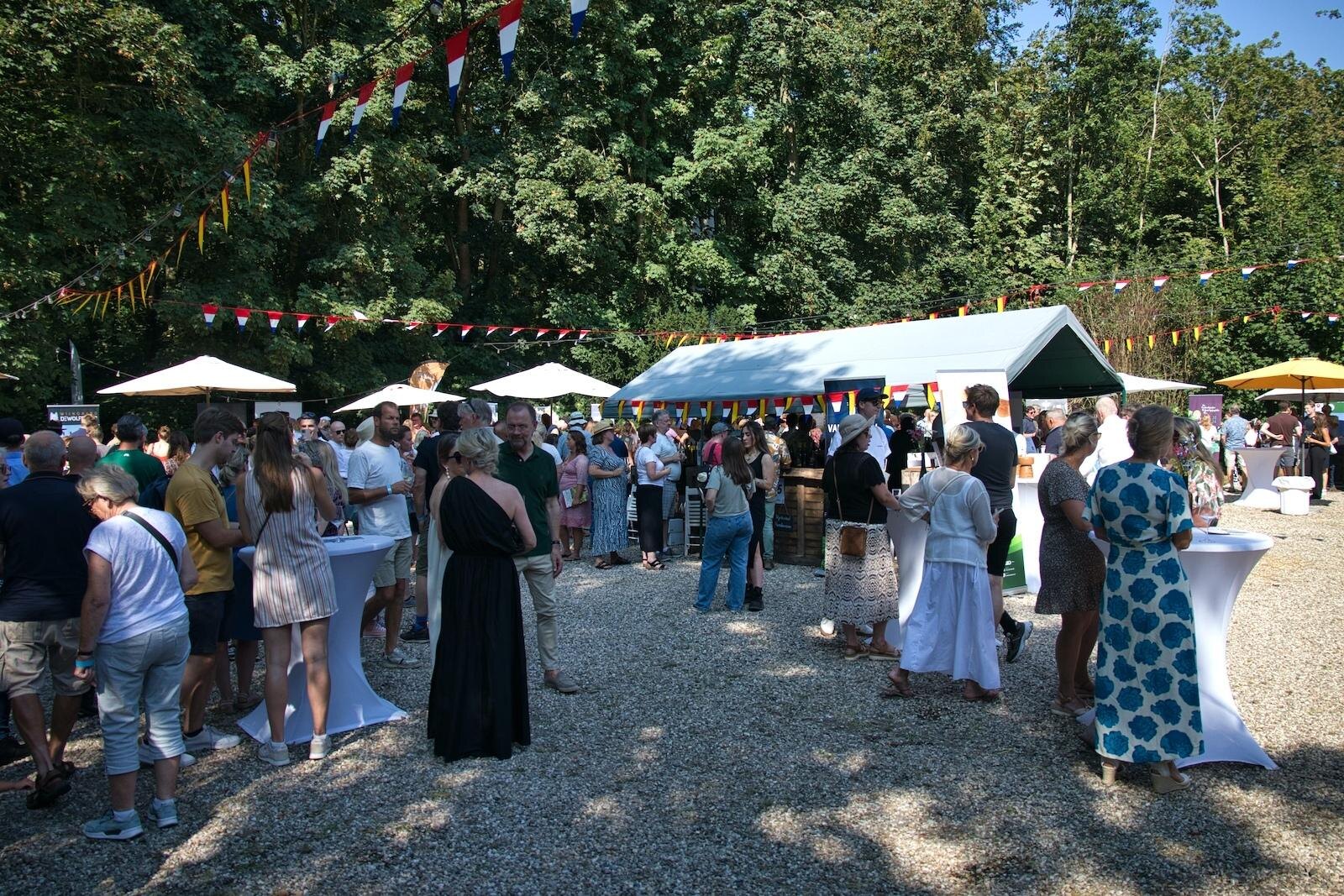
Overall, it was a very successful festival, thanks in no small part to the wonderful weather and beautiful location. It was particularly exciting to see young, second-generation winemakers at this wine festival. The future of Dutch and Belgian wine looks promising! A second edition in 2025 is certainly well-deserved.
Author: Johan de Ligt | Picture credits: Tasty Tales
Updated: 30-03-2025

